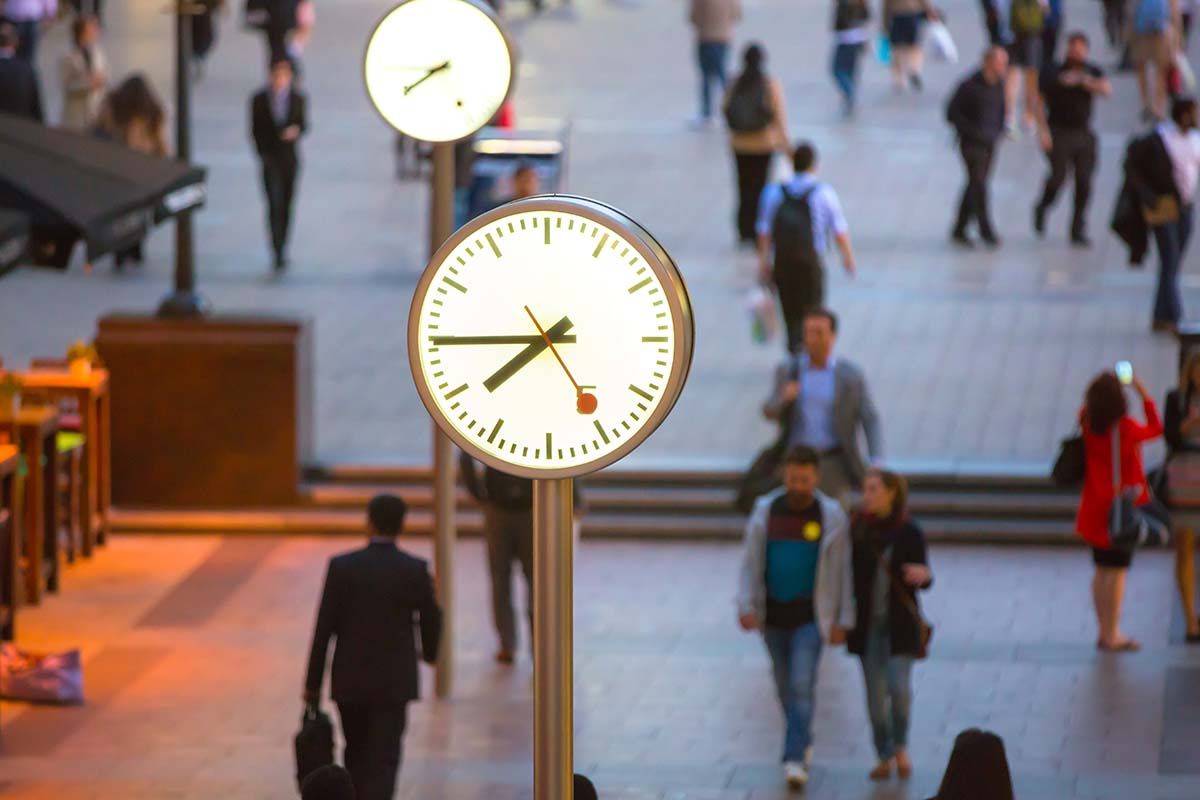British Pound Sags after Data Shows Economy Headed for Worst Year Since Crisis amid Parliamentary Brexit Threat to Currency
- Written by: James Skinner

© IRStone, Adobe Stock
- GBP edges higher after October GDP, ahead of crunch Commons vote.
- Economy to stumble into year-end amid rising "Brexit uncertainty".
- But markets look to parliament for cues on Pound Sterling direction.
The Pound sagged Monday after GDP data confirmed the economy remains on course for its weakest annual performance since the financial crisis, at the start of a week set to be dominated by events in Westminster.
The economy grew by 0.1% in October according to Office for National Statistics data, up from 0% previously, although both manufacturing and construction sectors had a torrid time during the month.
The services sector was the star of the show, with the index of services rising 0.2% to offset declines across the industrial segment that was weighed down by a -0.9% fall in manufacturing output and a -0.2% decline in construction.
GDP grew by 0.4% during the three months to the end of October, led again by the mighty services sector, although the industrial segment also made a positive contribution on the quarter.
"Rolling three-month growth in the manufacturing sector fell to zero, largely because of lower output from the pharmaceutical industry. But pharmaceutical output is notoriously volatile so we do not think this is a major cause for concern," says Thomas Pugh, an economist at Capital Economics.

"The modest 0.1% rise in GDP in October, after two months of stagnation, confirms that the economy has lost momentum since the summer," says Samuel Tombs, chief UK economist at Pantheon Macroeconomics.
All of the recent data emerging from the UK points to a soft finish to 2018 for the economy, which does little to improve a Bank of England interest rate outlook that has been darkened by persistent uncertainty over the path toward Brexit.
GDP growth slowed from 0.4% at the end of 2017 to just 0.1% in the first quarter. It then rebounded in the second quarter with a rise of 0.4% that was followed by a 0.6% increase for the three months to the end of September.
Consensus points to a paltry 1.3% for 2018. But with the economy up 1.1% for the year at the beginning of the final quarter, that consensus could yet prove too pessimistic, although a repeat of 2017's 1.7% expansion is still a tall order.
"We see little reason to change our view that growth in Q4 will come in at around 0.3%. This would mean that GDP growth for 2018 as a whole would be around 1.3%, which would be the weakest annual expansion since the financial crisis," says Capital Economics' Pugh.

Above: Pound-to-Dollar rate underperforms 2-year UK government bond yield.
The Pound was quoted 0.8% higher at 1.2720 against the U.S. Dollar following the release but has struggled to extend its gain any further, while the Pound-to-Euro rate was -0.18% lower at 1.1152. Both exchange rates are lower for 2018.
Sterling has lagged an upward movement in the 2-year UK government bond yield since 2017 in a classic sign of investors demanding a "risk premium" in order to hold the currency. One analyst says that premium can grow larger, by as much as 2%, during the coming days.
"The likely loss in the Parliament vote (potentially by a large margin), accompanied by the growing risk of the leadership challenge or a no confidence vote should be all GBP negative and send EUR/GBP above 0.9000 this week," says Chris Turner, head of strategy at ING Group.
Turner says Pound Sterling can fall 2% or more against the Euro this week, potentially taking the exchange rate down to around 1.0880, which would leave it close to the lowest level since the June 2016 referendum.

Above: Pound-to-Euro rate underperforms upward move in 2-year UK government yield.
Monday's data comes immediately after the European Court of Justice ruled the UK can unilaterally abandon its exit from the European Union if the nation's political leaders decide to do so.
It also comes just one day ahead of a crunch parliamentary vote that will see Prime Minister Theresa May attempt to secure backing for her agreement covering terms of the UK's withdrawal from the EU.
She is widely expected to lose the vote, likely leaving the UK economy cloaked in uncertainty over the Christmas period. Analysts say this will dominate the agenda for Pound Sterling much more than any growth data.
Fears are that a failure to get the Withdrawal Agreement passed through the House of Commons will increase the odds of a widely-maligned "no deal Brexit" and leave the government vulnerable to a confidence vote in parliament, which could ultimately give way to a new election.
2017's general election revealed that support for the Conservative government is lower than was previously thought while the appeal of the opposition Labour Party, which is headed by an openly Marxist shadow cabinet, is greater than most had anticipated.
Analysts at global lender MUFG say the Pound could fall to historic lows against the Euro and Dollar over coming months if PM May cannot get her Brexit bill through parliament.
Advertisement
Bank-beating exchange rates. Get up to 5% more foreign exchange by using a specialist provider to get closer to the real market rate and avoid the gaping spreads charged by your bank when providing currency. Learn more here




